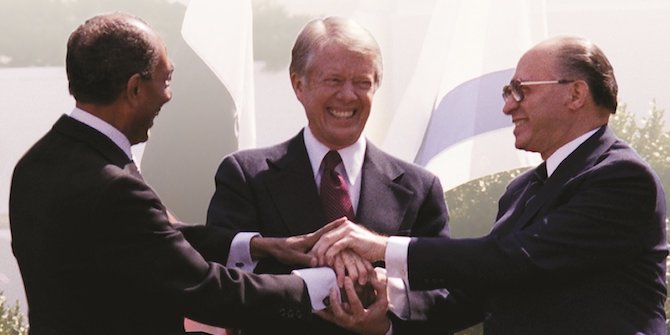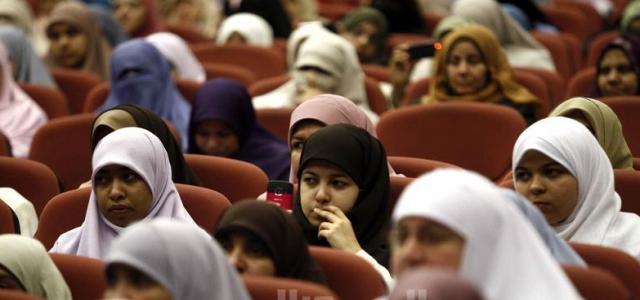by Stefanie Grant

The Global Compact on Migration is a timely reminder of the role of consuls in the protection of migrants’ rights: from issuing documents to arranging criminal defence.
Consuls have been largely invisible in discussions of migrants’ human rights. Their role in protecting nationals abroad has tended to be forgotten, with priority given to the development of migrant protection under human rights law. The two approaches have very different antecedents: consular protection developed over centuries and is rooted in the reciprocal interest of states in protecting their nationals, while human rights law flows from the 1948 Universal Declaration of Human Rights, and protects the individual regardless of nationality. One result has been that international consular law has remained a separate, if parallel, framework for migrant protection. It is now time to bring the two into convergence.
In practice, consular assistance and human rights protection do often converge, notably on the issue of identity documents. Birth registration is at one and the same time a normal consular function and a right under the Convention on the Rights of the Child (CRC). When a consulate registers a birth, and issues a birth certificate, it is protecting an internationally recognized human right: the child’s right to have his or her birth registered, identity preserved, and to avoid statelessness.
Consular protection is a right of states, and all countries provide some consular services to their nationals: protecting rights, providing evidence of legal identity, and ensuring that they are recognised as persons before the law in foreign countries. The scope and content of consular activity is a matter of national policy, rather than a reflection of international legal obligations. Very few countries of emigration have the resources to ensure that consular representation is within reach of their nationals in all parts of the world.
But legally there is a distinction between consular and human rights protection. At the highest judicial level there has been a reluctance to interpret international law – the 1963 Vienna Convention on Consular Relations (VCCR) – in ways which reflect more recent human rights law. This was made clear by the International Court of Justice in 2004. Mexico had asked the Court to rule that 52 Mexicans, held on death row in the US, had been denied their human rights because the US authorities had at no time – arrest, trial, conviction or sentence – informed them that they could contact their consul.
Mexico’s Memorial to the Court is a cogent description of how consuls protect the due process rights of migrants facing trial in a foreign criminal justice system. Mexico first described obstacles which all migrants face: foreign language and culture, unfamiliarity with the legal system, fears of deportation, and isolation from family, friends, and their community. It argued that consular officers are uniquely well positioned to educate their nationals concerning their legal rights. Mexico went on to describe how Mexicans in the US were often subjected to discriminatory treatment.
Whether subtle or overt, shouted or murmured, bias often infects the treatment given to foreign nationals in the courtrooms, jails, and lawyers’ offices of receiving states. Consular officers can detect the presence of unfair bias and raise such concerns with the appropriate authorities and, if need be, with the court itself. [312 & 313]
In its judgement, the Court confirmed Mexico’s right under the VCCR to be notified when a national was arrested. But it expressly declined to consider whether contact with a consul was also a human right for its nationals. The regional Inter-American Court of Human Rights had previously taken a different view, characterising consular contact under the Vienna Convention as part of international human rights law.
This question has been given new impetus by the Global Compact. In signing the Compact, states have undertaken to strengthen consular activities ‘in order to safeguard the rights and interests of all migrants at all times’ in compliance with international law. The Compact lists some of these activities: providing proof of legal identity, assisting families searching for missing relatives, and to migrants exploited by employers.
Consular assistance is already protected under human rights law. The International Convention on Migrant Workers (ICMW) defines consular notification as an individual right, and gives migrant workers and their families a right to consular protection and assistance ‘whenever the rights set out in the Convention are impaired’; it protects both economic and civil rights
Although the Convention has been ratified by only a minority of states. In some regions, including north and north-west Africa, it already creates a legal framework for migrants to access consular assistance. Thus, migrants from, for instance, Nigeria, Senegal, Mali or Syria, whether regular or irregular, are entitled to assistance from their consuls if they run into difficulties in obtaining identification documents because national civil registration authorities of, for instance, Egypt or Morocco refuse to register a birth, a marriage or a death.
In the case of Senegal, Senegalese domestic law includes consuls among the official authorities with a responsibility for registering births. In ratifying the ICMW, Senegal accepted that its consuls also have a duty in international law to assist nationals. UN experts to whom Senegal reports, have asked – inter alia – what had been done to inform Senegalese migrant workers and their families about available consular services, including the right to assistance in the case of detention or expulsion. Similarly the experts asked Algeria to give specific examples of consular services provided to migrant workers and members of their families. It noted the growing percentage of Algerian women among migrant workers, and asked for information on efforts to increase the gender-sensitivity of staff dealing with labour issues in embassies and consulates.
There is often an inverse relationship between the number of a country’s migrants and the presence of consulates in the countries where the most vulnerable are to be found. The Compact and the Convention both recognise that where a state lacks resources or capacity – through poverty or conflict – other states should cooperate to assist its nationals. Cooperation between European Union member states is an example of how this might operate.
Another component of an international framework for consular protection is the Convention on the Rights of the Child, with its all but universal acceptance by states. The UN Committees which oversee the CRC and the ICMW have recommended that a core principle of the CRC, the best interests of the child, should be integrated in consular protection policies and services. This would complement the traditional consular function of safeguarding the interests of minors (VCCR Article 5(h)). But the two legal duties run in parallel, and have not yet been brought into convergence.
Mapping convergence is something which academics could usefully undertake, perhaps as the first step in a wider exercise of harmonising international human rights and international consular law. One point of departure would be the Global Compact’s understanding of consular activities as a means of safeguarding ‘the rights and interests of all migrants at all times’ (para 30).
 Stefanie Grant is Chair of the Institute on Statelessness and Inclusion and a former Visiting Senior Fellow at LSE Human Rights. Much of her work has focused on migrants’ rights – as a solicitor, as a human rights lawyer, within the United Nations, as an academic, and through civil society. She is a trustee of the European Network on Statelessness.
Stefanie Grant is Chair of the Institute on Statelessness and Inclusion and a former Visiting Senior Fellow at LSE Human Rights. Much of her work has focused on migrants’ rights – as a solicitor, as a human rights lawyer, within the United Nations, as an academic, and through civil society. She is a trustee of the European Network on Statelessness.
This blog post and the others in the series are based on presentations during a workshop convened by the MEC on 1 March 2019 discussing statelessness and legal identity in the context of migration. @BronwenManby
In this series:
- Preventing Statelessness among Migrants in North Africa and their Children: Birth registration and ‘legal identity’ by Bronwen Manby
- State Obligation to Establish Legal Identity in Comparative Perspective by Alenka Prvinšek Persoglio
- Civil Registration and Legal Identity in Humanitarian Settings by Ann Livingston
- Preventing Statelessness among Undocumented Migrants: The role of the International Organization for Migration by Anne Althaus & Laura Parker
- From Birth Registration to Confirmation of Citizenship: Is the UK process the model to aspire to? by Elan Schwarz and Brianna Gomez
- What is the Fuss over the UN’s Global Compact for Safe, Orderly and Regular Migration? by Elspeth Guild
- When Identity Documents and Registration Produce Exclusion: Lessons from Rohingya Experiences in Myanmar by Natalie Brinham
- Consular Protection, Legal Identity and Migrants’ Rights: Time for Convergence? by Stefanie Grant
- Obstacles to Accessing Civil Registration and Identification: NRC’s Field Experiences with Displaced Persons by Fernando de Medina-Rosales
- Defining Identity and Identifying Migrants in the Global Compact for Migration by Tendayi Bloom






